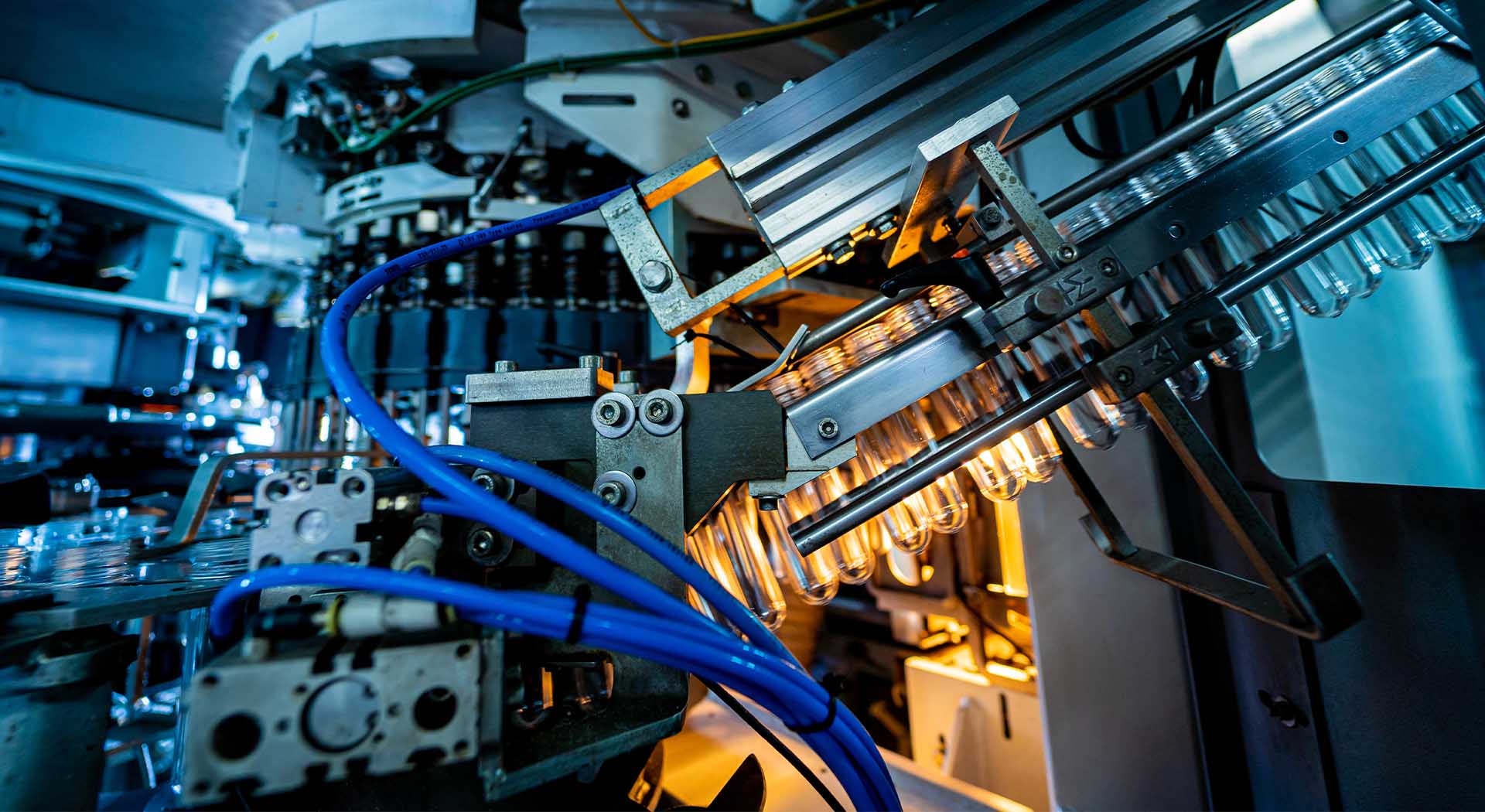*This is a Washington State average for this occupation. Wage rates vary by employer, industry, experience and location. Source: Washington State Employment Security Department 2021 Occupational Employment and Wage Estimates.
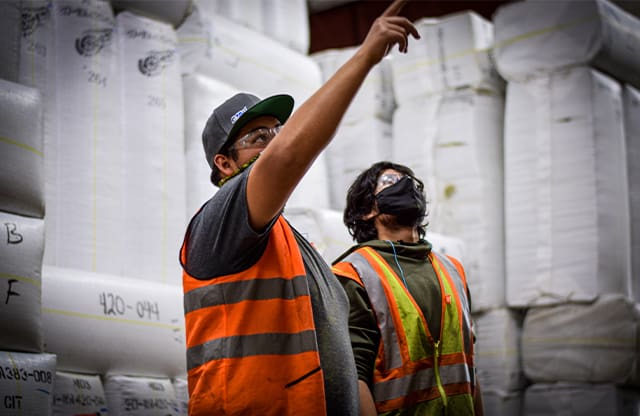
What is an Industrial Machine Operator?
An Industrial Machine Operator is responsible for operating and maintaining the machinery used in the production of food products.
This can include tasks such as:
- setting up and adjusting machines,
- monitoring production processes,
- performing routine maintenance, and
- troubleshooting any issues that arise.
They may also be responsible for ensuring that the machinery is operating in compliance with food safety regulations and standards.
Every industrial machine requires an operator to interact with it to set parameters, adjust parameters, perform initial set up, ensure quality standards are adhered to.
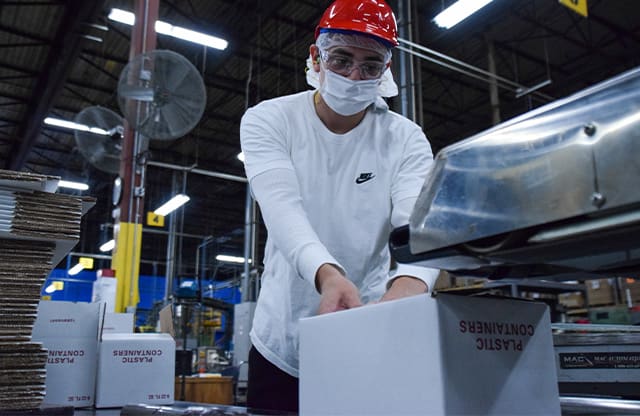
What are the Benefits of Becoming an Industrial Machine Operator?
An Industrial Machine Operator is an entry-level apprenticeship occupation that develops foundational manufacturing skills in a variety of industries—particularly food processing and packaging.
Upon completion of an Industrial Machine Operator apprenticeship, you can move onto more advanced occupations such as Machinist, Maintenance Technician, Metal Fabricator and Quality Control Inspector.
As an Industrial Machine Operator, you will enjoy a long-term career with a good salary, job advancement opportunities, and the chance to work with your hands and cutting-edge technology.
Step to Becoming an Apprentice


6 Steps to Becoming an Apprentice
Get Hired by a Participating Employer AJAC Partners With
Receive Participation Approval from Your Employer
Sign an Apprenticeship Agreement with AJAC
Enroll in AJAC’s Apprenticeship Classes Each Quarter
Log and Submit Your OJT Hours Monthly
Receive a Nationally-Recognized Journey-Level Certification from L&I
How Much Can I Earn?
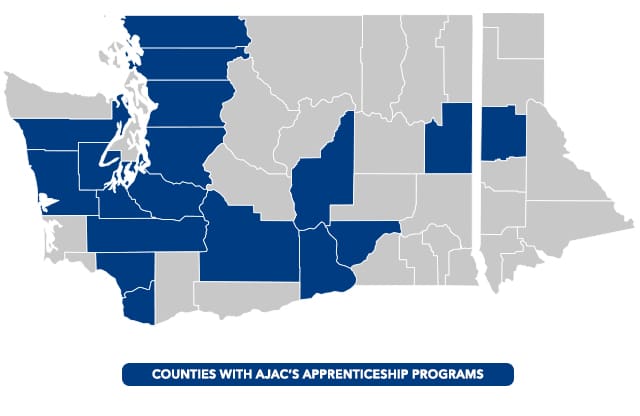
Where Will I Work?
AJAC has partnered with 300+ advanced manufacturers to provide supervised, structured, paid on-the-job training.
AJAC apprentices can only work for companies that agree to hire them and place them into the program.
Each company has their own methodology for who they select as an apprentice.
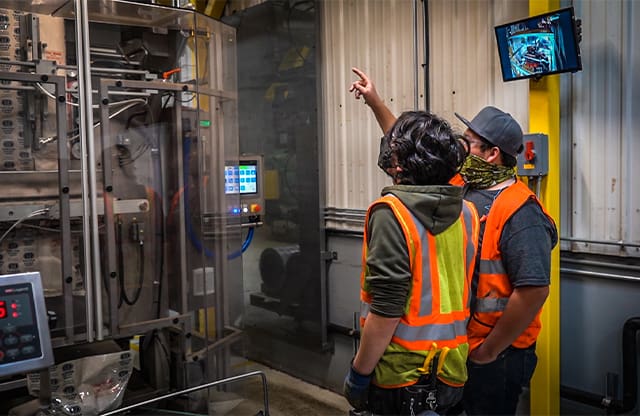
Where Are Classes Held?
Classes are held one night a week, typically on a Tuesday, Wednesday, or Thursday from 5:00 pm to 9:00 pm.
AJAC’s apprenticeships classes are structured for both online learning or in-person learning. Depending on the specific class you are taking, you may be required to complete it online or in-person.
In-person classes are held either a local community/technical college, high school, or skills center.
Apprenticeship Classes
Industrial Machine Operator apprentices take six college-level classes. Each class consists of 50 hours of lecture and/or practical application. Upon completion of each class, apprentices will receive 5 college credits.
As a registered apprentice, you automatically receive 50% reduced tuition. Over half of AJAC’s partnering employers elect to pay for their apprentice’s tuition, making the entire apprenticeship free-of-cost.
Currently, each class costs $300 out-of-pocket.
This course introduces the concepts of working in a safe and productive food manufacturing workplace. Apprentices explain important OSHA safety standards as well as standard operating procedures to ensure proper sanitation.
This is the first of two courses that explores the foundational principles and skills of industrial machine maintenance as it relates to a machine operator. Apprentices learn predictive and preventative maintenance and troubleshooting strategies for machine repair.
This is the second of two courses that explores the foundational principles and skills of industrial machine maintenance as it relates to the machine operators. Apprentices learn about mechanical rigging and installation, including safety, installation, and ways to perform lifts.
In this course, apprentices develop an understanding of the functions of a Quality Assurance (QA) system. They identify the elements of QA systems and how they support safe food manufacturing processing. They learn the purpose of food safety and quality practices and strategies.
This course explores the relationship between the basic principles of science and the safe manufacturing of food products. Apprentices gain an understanding of food science to learn how it applies to their day-to-day jobs. They explain the foundational principles of food chemistry, food microbiology, and food physics and how they relate to food production.
This course explores the changing world of food manufacturing technology and helps students apply what they learn to a food-processing environment. Apprentices describe packaging, filling, sealing, boxing, labeling, and robotic sorting and palletizer systems.
On-the-Job Training Competencies
The table below is a schedule of tasks and hours designed as a guide. The 3,000 hours will be completed over the course of the apprenticeship. The apprentice shall be instructed and trained in all operations and methods customarily used on the various machines. Each company will adhere to the schedule as closely as facilities will permit in order to provide the apprentice with well-rounded experience and practice on all relevant equipment and processes in the shop.
| OJT Competency | Approx. OJT Hours |
|---|---|
| Preventative & Predicative Machine Maintenance | 300 |
| Manufacturing Basics & Safety | 500 |
| Quality Assurance Basics | 800 |
| Manufacturing Equipment Setup & Production Processes | 1,400 |
| TOTAL HOURS | 3,000 |
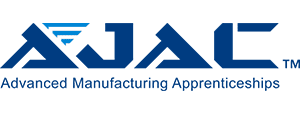
Launch Your Career Today!
Submit your information using the link below. After we receive your information, an AJAC representative will contact you for next steps. Please note, this is not an official application to become an apprentice. After a partnering employers agrees to enroll you in the program, you will officially apply and enroll at that time.
